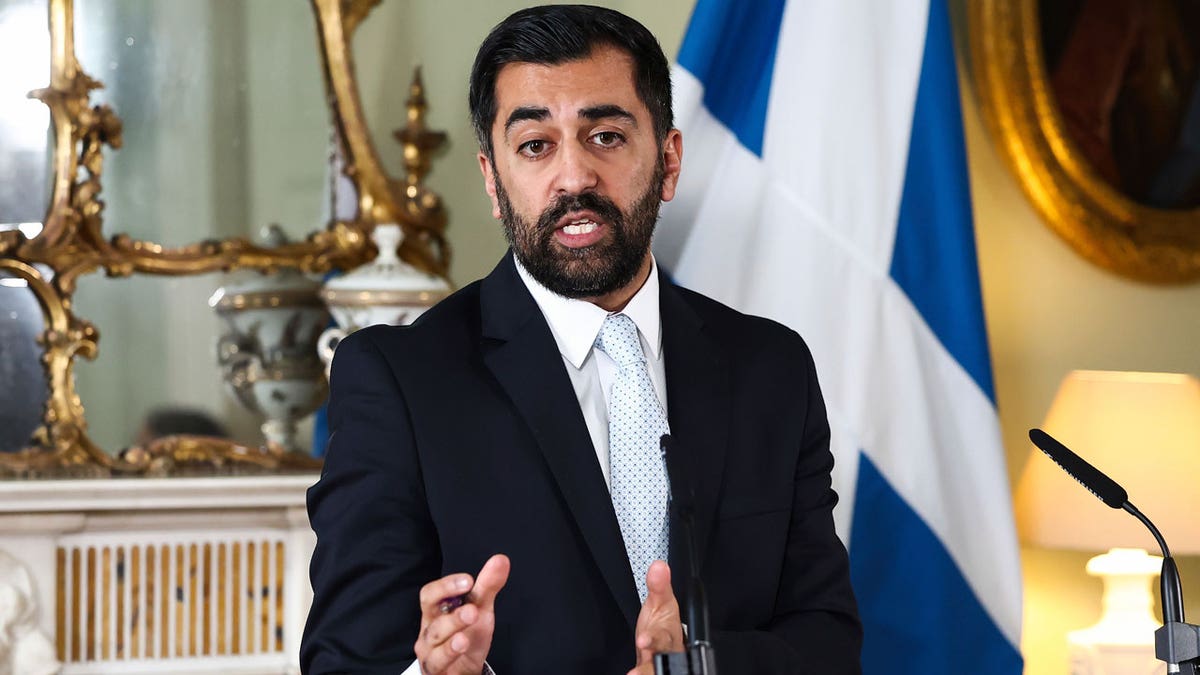close 
This Scottish law depends upon the willingness of the government to allow free speech: Glenn Greenwald
Independent journalist Glenn Greenwald discusses the impact of Scotland’s Hate Crime Act on ‘The Ingraham Angle.’
Scotland’s first minister, Humza Yousaf, resigned on Monday rather than face a no-confidence vote just days after he torpedoed a coalition with the Green Party by ditching a target for fighting climate change.
Yousaf, whose Scottish National Party has been weakened by a campaign finance scandal and divisions over transgender rights, stepped down after failing to strike a deal with a breakaway nationalist party whose single seat could have given him a majority in Scotland’s devolved regional parliament.
With no prospect of victory, Yousaf quit rather than face defeat later this week when Scottish lawmakers were scheduled to vote on motions of no confidence in Yousaf and his government.
CONSERVATIVES’ ATTEMPT TO REPEAL HATE SPEECH LAW THAT MADE SCOTLAND AN ‘INTERNATIONAL MOCKERY’ FAILS
“After spending the weekend reflecting on what is best for my party, for the government and for the country I lead, I’ve concluded that repairing our relationship across the political divide can only be done with someone else at the helm,” he told reporters. “I have therefore informed the SNP’s national secretary of my intention to stand down as party leader.”

Scotland’s First Minister Humza Yousaf speaks during a press conference at Bute House, Edinburgh, on April 25, 2024. Yousaf resigned on April 29, 2024, rather than face a no-confidence vote following the ending of a coalition between his Scottish National Party and the Green Party. (Jeff J Mitchell/PA via AP, File)
The debacle in Scotland adds to the fevered political climate in the broader United Kingdom, where concerns about immigration, health care and government spending have undermined support for the ruling Conservative Party.
The Conservatives and the opposition Labour Party had proposed separate no-confidence motions as they sought to weaken the SNP before a U.K.-wide parliamentary election expected to take place later this year. The SNP has been the dominant party in Scottish politics for almost two decades and currently holds 43 of the country’s 59 seats in the U.K. parliament.
CLICK HERE TO GET THE FOX NEWS APP
On Thursday, England and Wales will hold local elections that are seen as barometer of support for the government.
In an effort to save his government, Yousaf had written to all of the party leaders asking for separate meetings to discuss their concerns “in a hopefully constructive spirit.”
With all the other parties lined up against him, the tight electoral math in Scotland meant that Yousaf’s fate hinged on the upstart Alba Party, which holds just one seat in the Scottish parliament. The SNP has 63 of the 128 voting lawmakers, leaving Yousaf one vote short of what he needed to eke out a victory.
